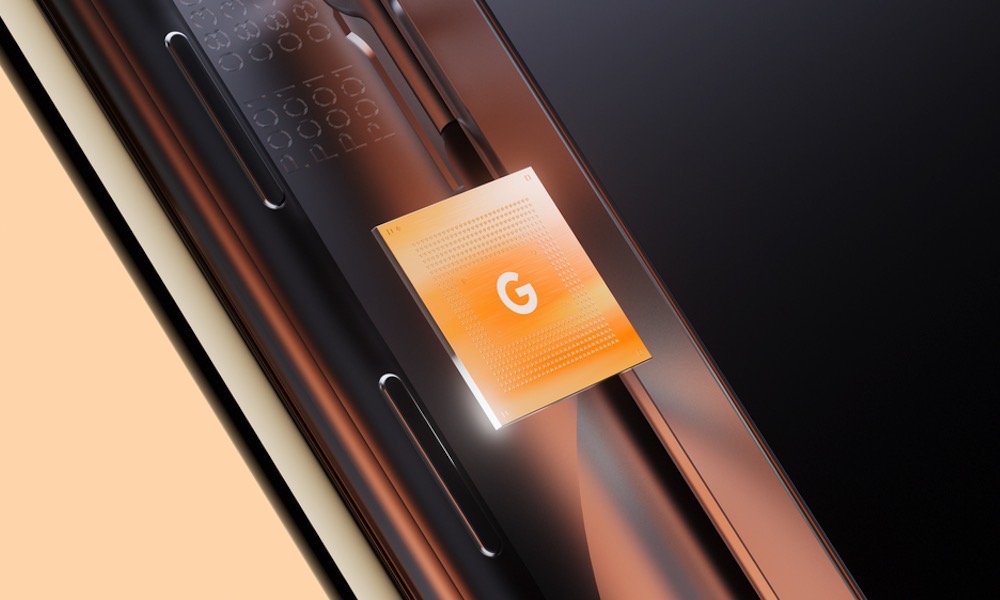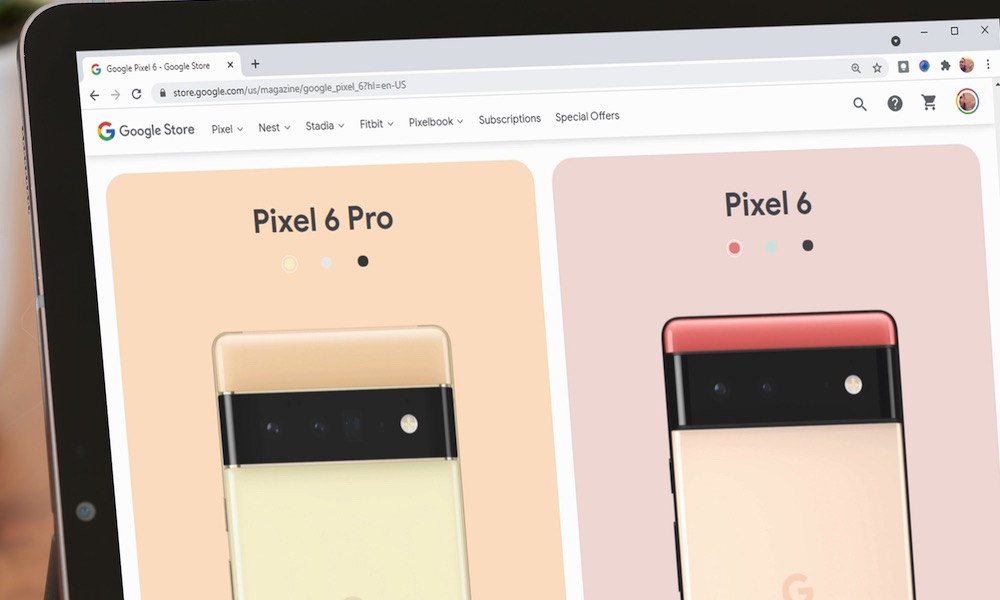Google Is Building Its Own Silicon, But It Has a Long Way to Go to Catch Up with Apple (Here’s Why)
 Credit: Google
Credit: Google
Toggle Dark Mode
When Google teased the upcoming Pixel 6 earlier this week, it came with the surprising news that the company will be powering it with its own custom-designed SoC — the Google Tensor chip.
Although this sounds like Google is simply trying to copy Apple’s approach, there’s a bit more going on here, as it’s also the way the industry is moving in general. Apple is merely well ahead of the curve on this one.
For years, Android phones have been mostly powered by various chips made by Qualcomm, but much like Intel’s dominance in the PC space, that’s always been a one-size-fits-all model. That may work for general-purpose desktop and laptop computers, but it’s never been the best fit for smartphones.
This has become even more true as we’ve moved into areas like computational photography and machine learning. Today’s high-end smartphones are as much about photography as anything else, and as Apple has already proven with its own A-series chips, getting the most out of your smartphone camera requires more than a generic third-party chip can deliver.
Google’s Tensor
As Android Authority points out, Google’s logic for moving to its own in-house silicon is very similar to Apple’s, as it will allow Google to take control of its vision for what the Pixel should become, without being hampered by what Qualcomm thinks an SoC should be able to do.
The reality is that we’ve moved past the point where raw performance is the single distinguishing characteristic of an SoC. Apple’s A-series chips moved past the point of user-facing performance improvements about five years ago. Instead, features like the Neural Engine in the A11 Bionic and later power a bunch of other sophisticated machine learning features that produce better photos and empower other on-device capabilities like deep photo analysis, Live Text and Siri.
Creating a custom chip will also help Google to differentiate the Pixel in a way that’s otherwise hard to do in a crowded market of Android smartphones. While every handset maker has its own unique features and customizations, it’s still a much more competitive landscape.
It’d be hard to argue if Google thinks the Pixel 6 experience will benefit more from enhanced AI rather than Facebook opening 5% faster than last year.
Android Authority
After all, customers who want an iPhone buy an iPhone, while customers who want an Android device have a wealth of options to choose from. They aren’t going to automatically gravitate toward the Pixel just because it’s made by the same company that produces the Android operating system.
Android Authority also suggests that moving to a custom-developed chip may also allow Google’s Pixel devices to get software updates for a much longer lifespan. Most Android smartphones infamously fall off the update bandwagon after about three years, but it turns out that’s largely tied to Qualcomm’s support roadmap. Nobody wants to continue trying to support Android updates for a chip that’s no longer backed up by its own manufacturer.
With its own chip, the update cycle would be entirely in Google’s own hands. There’d be no artificial reason to prevent it from supporting the Pixel 6 with Android OS updates for five years or even more if it wanted to.
Starting From (Way) Behind
While this may be exciting news for fans of the upcoming Pixel 6, Google has a very long road ahead of it before it will even begin to catch up with Apple.
Firstly, Google has virtually no experience in designing its own chips. While some of that can be acquired by bringing on new talent, there’s still a long ramp-up process.
After all, consider the Apple has been designing its own chips since the original iPhone launched in 2007, culminating in the recent move to Apple Silicon in its Mac lineup. Yet, with all of this expertise on board, plus the acquisition of Intel’s 5G business, it’s still not expected to have a 5G modem chip ready for the iPhone until 2023, at the earliest. These things take time.
Along the same lines, the A14 chip that powers the iPhone 12 is the result of over a decade worth of chip design work, and even though the Mac’s M1 is technically brand new, it’s ultimately standing on the shoulders of that same engineering legacy.
To be fair, it looks like Google is being fairly realistic here, however. It’s not expecting to have an A-series competitor ready to go right out of the gate. Google hardware chief Rick Osterloh has said Tensor will be “very competitive” regarding CPU and GPU performance, but we suspect he’s talking about competing with Qualcomm-powered Android handsets, not the iPhone.
More to the point, however, Google has no architecture designers on board, as far as we know. As Android Authority suggests, it’s almost certainly licensing off-the-shelf Arm components, so at this point it sounds like it’s more about mixing and matching components to create a bespoke chip than designing its own from the ground up.
Google is also being slightly evasive about who is even making the new Tensor chip, and there’s no word on what 5G capabilities will be coming to the Pixel 6. Since the device isn’t expected to arrive until sometime later this year, this latest reveal is really just a teaser intended to whet people’s appetites.
According to Google CEO Sundar Pichai, the company has been working on the Tensor for about for years, which sounds like it decided to strike out on its own when it first realized that it would need stronger AI and machine learning capabilities than Qualcomm was ready to deliver.
What’s interesting, however, is that this timeline also means the project was kicked off not long before Google’s legendary AI Chief, John Giannandrea, left Google to become Apple’s new Senior VP of Machine Learning and Artificial Intelligence. Make of that what you will.
At this point, it remains an open question whether Google’s Tensor chip is actually going to be ahead of the curve, as Qualcomm hasn’t exactly been sitting still for the past four years either. While the Tensor will almost certainly be tailored more specifically to what Google wants to accomplish with its own first-party smartphones, there’s also the possibility that the company is just reinventing the wheel in order to “keep up with the Joneses.”







